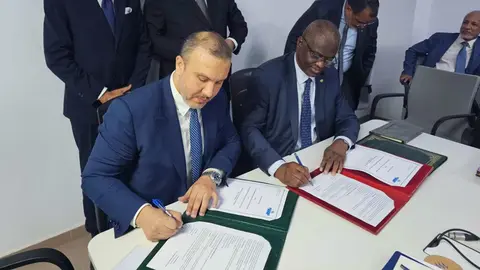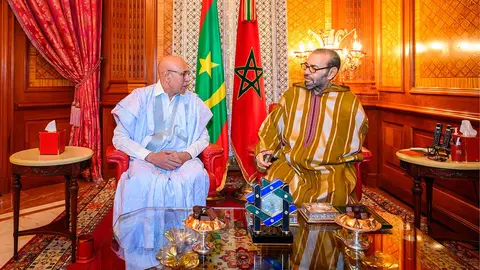Morocco and Mauritania promote integrated and sustainable policies for the Sahel
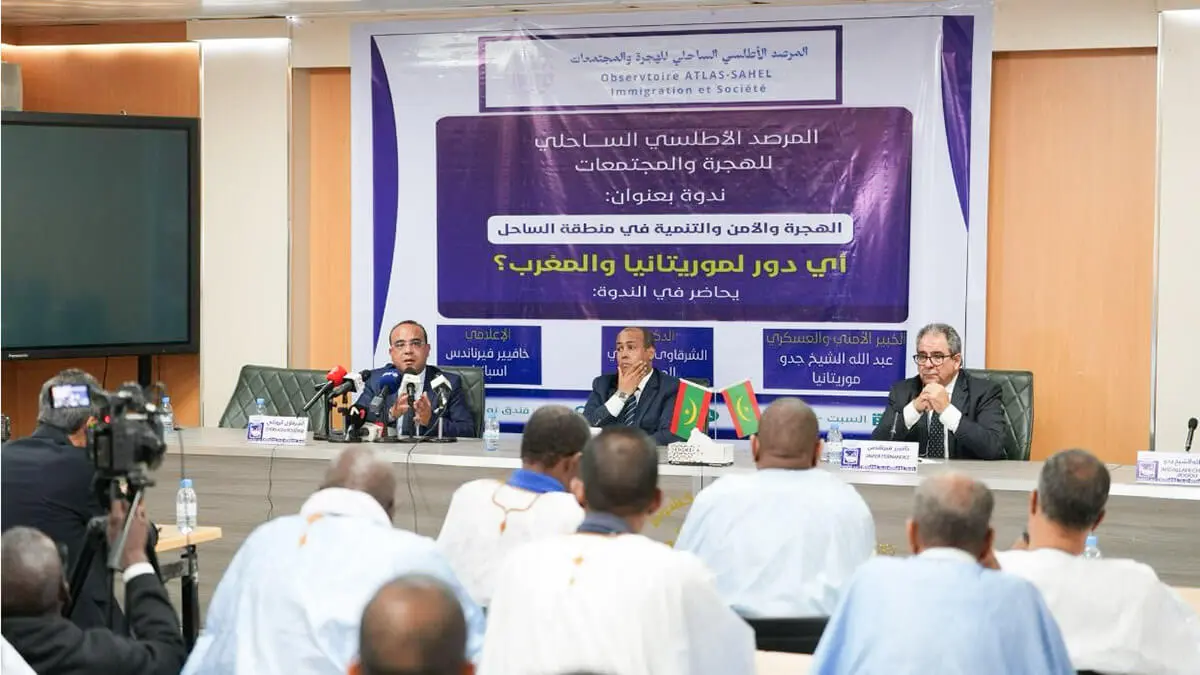
The Atlantic Coast Observatory on Migration and Societies, directed by the journalist Mohamed Lemine Khattary, organised a colloquium this weekend in Nouakchott, the capital of Mauritania, entitled ‘Migration, security and development in the Sahel region: what is the role of Mauritania and Morocco?’
The development, stability and security of the Sahel is key for North Africa, and therefore for Europe, and therefore the coordinated political action of Morocco and Mauritania is key to achieving this objective, which is fundamental to the interests of the entire region.
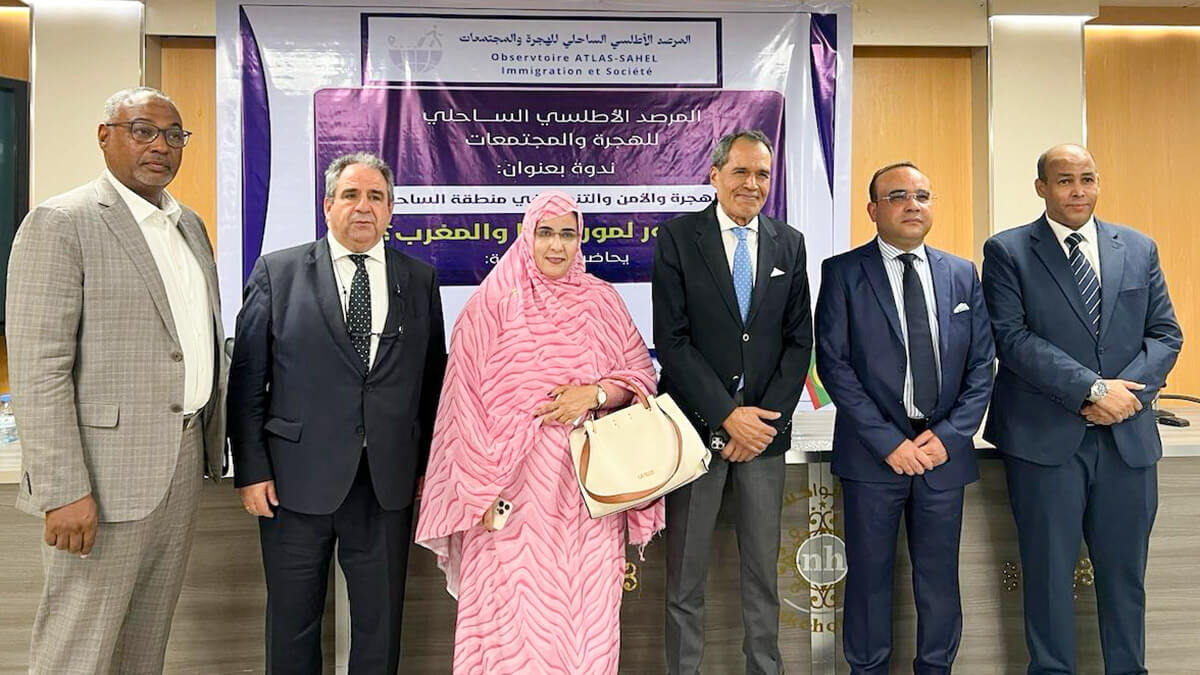
This was one of the conclusions of the event, which was attended by a group of experts in security and the media, including retired colonel Abdullah Ould Jeddou, Moroccan expert Cherkaoui Roudani and Spanish journalist Javier Fernández Arribas.
Prominent figures from Mauritanian society attended, as well as the Moroccan ambassador to Mauritania, Hamid Chabar.
During the colloquium, the participants agreed that Mauritania and Morocco are no longer mere transit points for migrants heading to Europe, but have become destinations for settlement and reception due to their geostrategic location and changes in migratory dynamics.
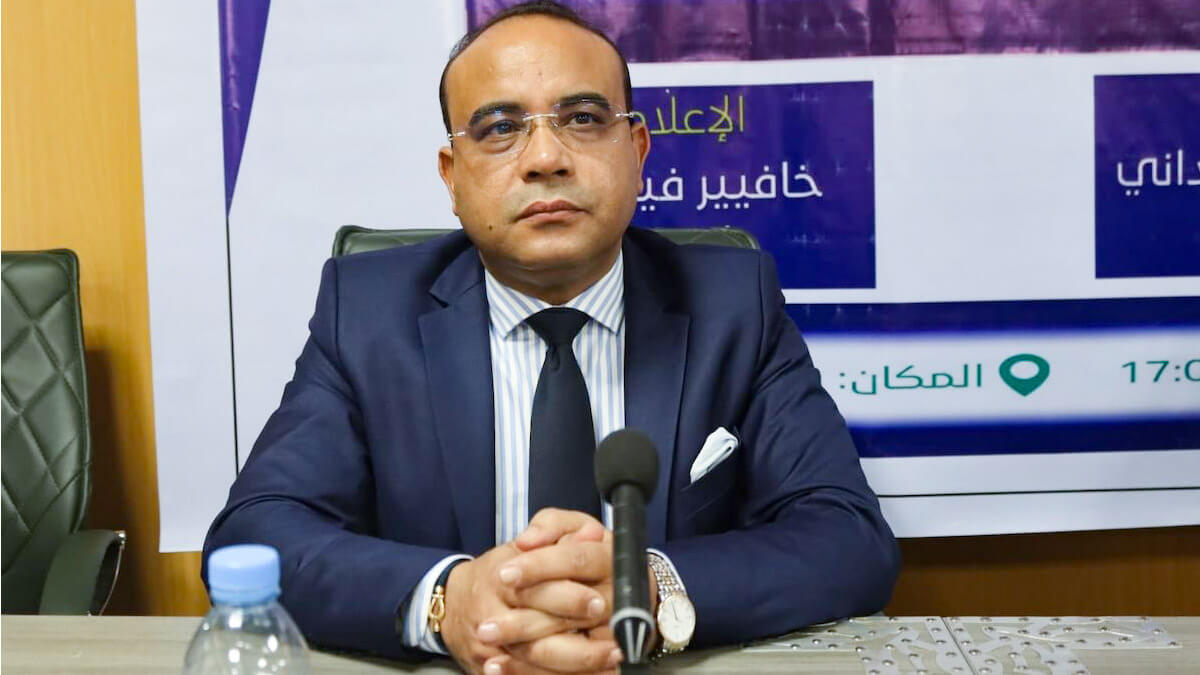
Both countries have seen increased waves of sub-Saharan African migrants and asylum seekers fleeing conflict and war, creating security, economic and social challenges. These challenges demand more integrated and sustainable policies.
The seminar addressed the security implications of irregular migration, highlighting that human smuggling and trafficking networks represent a growing threat. Experts called for deeper regional cooperation among countries in the region.
Global economic transformations, the intensification of climate crises and armed conflicts have also complicated the situation. The reasons for seeking asylum are no longer linked solely to political or religious persecution; fragile economic conditions, lack of opportunities and climate change have become determining factors that drive people to seek alternatives outside their countries of origin.
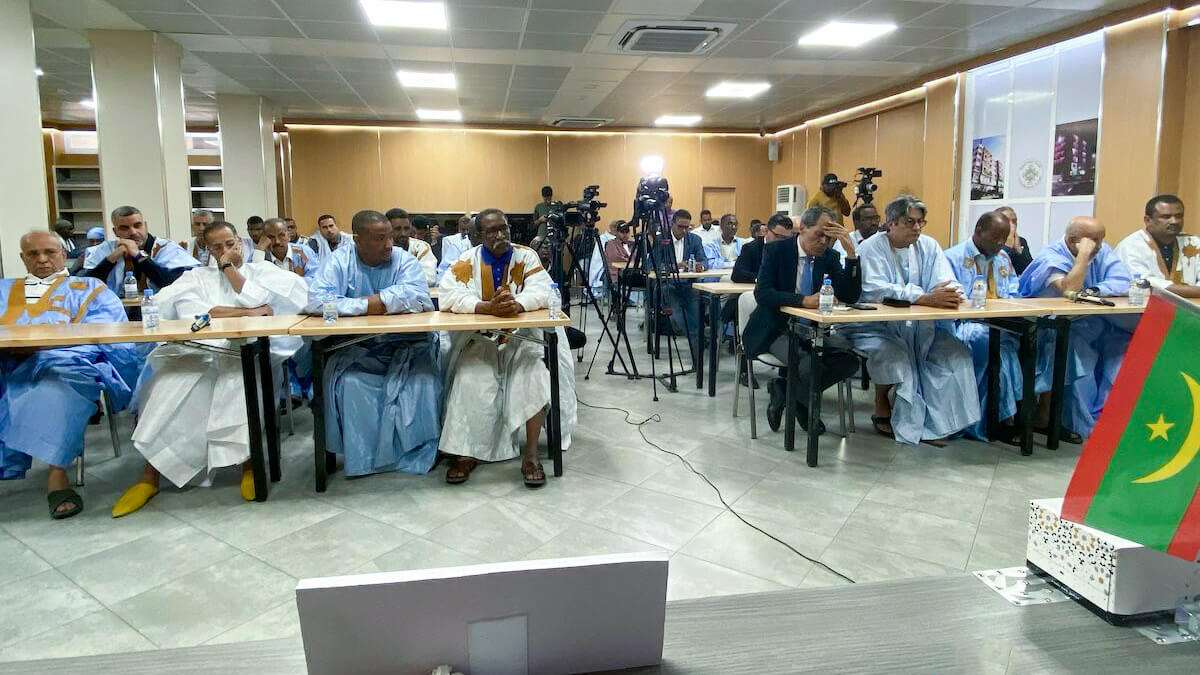
The meeting also analysed asylum as a growing international challenge, as it is no longer limited to individuals under political or ethnic threat. Now there are refugees for economic reasons and unaccompanied minors, which raises questions about the capacity of international laws to adapt to these changes.
Participants emphasised the need to develop comprehensive legal reforms that guarantee the protection of refugees' rights, balancing national security requirements with humanitarian obligations.
The symposium concluded that the management of migration and asylum in the Sahel region requires a multidimensional approach that takes into account security, economic development and regional cooperation.

Experts emphasised the importance of strengthening coordination mechanisms between Mauritania, Morocco and European countries, through policies aimed at addressing the root causes of migration, rather than focusing exclusively on short-term security solutions.
As transformations in the migration landscape continue, Mauritania and Morocco face a growing responsibility, which requires strengthening cooperation and striking a delicate balance between security and human rights, in order to ensure more effective management of this complex challenge.

